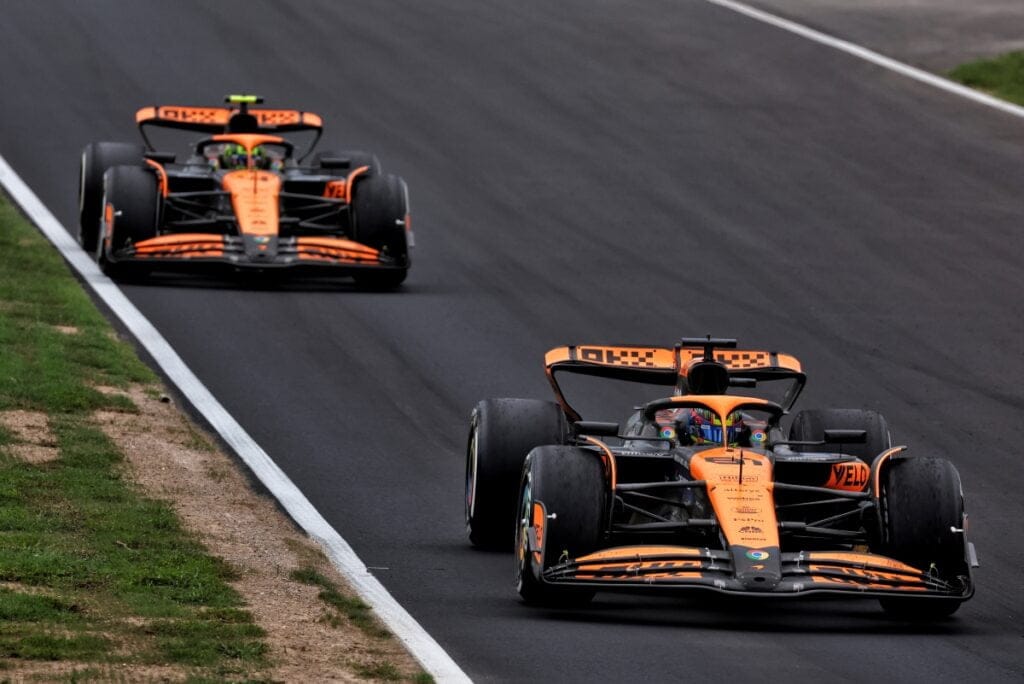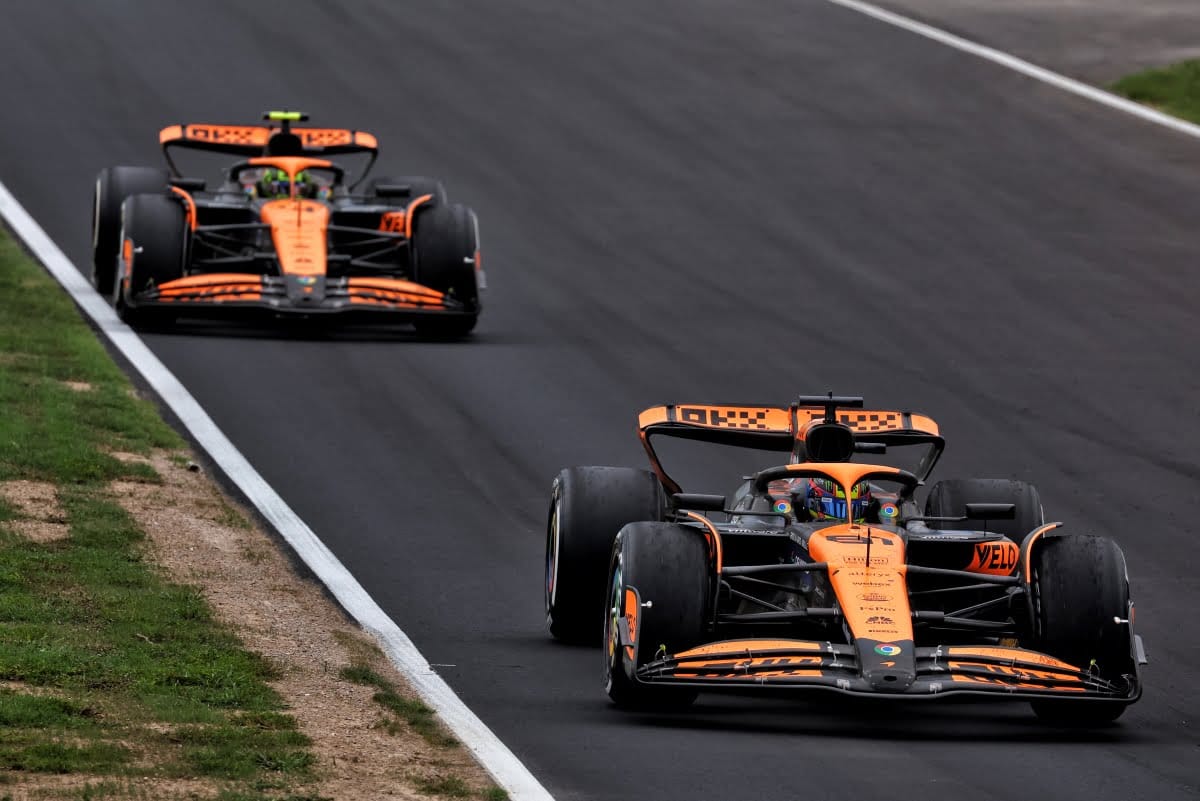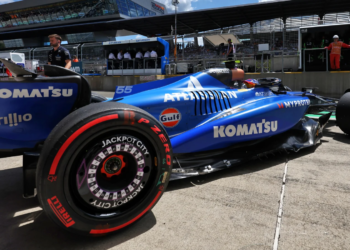McLaren boss Andrea Stella has revealed that it elected to not swap its drivers in Formula 1’s Italian Grand Prix as it wanted Oscar Piastri to pressure Charles Leclerc.
Piastri was chasing down Leclerc in the closing laps at Monza on newer rubber, but he was unable to overcome the margin to beat the one-stopping Ferrari to the win.
Starting second, Piastri climbed into the lead on the opening lap when he executed a bold pass on team-mate Lando Norris around the outside of the second chicane.
The Australian managed to streak clear and appeared on course to seize a second career F1 win until Ferrari and Leclerc’s genius switch to a one-stop paid dividends.
Piastri coming into the race 45 points behind his team-mate prompted questions on McLaren’s choice not to give Norris three more points to bolster his title chances.
However, Stella has explained that McLaren chose not to invert the cars as it believed there was still a chance that Piastri gaining could coerce Leclerc into a mistake.
Asked whether the team considered telling Piastri to let Norris through into second place, Stella told media including Motorsport Week: “We did not consider that.
“We considered other ways during the race to make sure Lando had his own opportunities, but we didn’t consider the swap.
“Even because we were still willing to put as much pressure as possible on Leclerc. Eventually, induce him to have a problem with the front left like a lock-up in one of the chicanes.”

Stella has denied that McLaren would have been more prepared to issue a team order had Leclerc not been in the picture and Piastri had been heading Norris in a 1-2.
“I think without Leclerc, Lando and Oscar would have been close enough that we could have played with some other variables,” he explained.
“That does not necessarily mean that now we swap positions, because I don’t think … at least this wasn’t part of our agreement.
“It looks a little brutal if you ask a driver who is going to win a race he gained on track that you have to swap positions.
“But we will review all these things for the next races and if we come to the conclusion together that swapping is the right thing to do, then we will do it.”
Put to him that McLaren imposed a team order to switch cars at the Hungarian Grand Prix to hand Piastri a win, Stella retorted: “But that’s a completely different case.
“In that case the stop happened on track because the team controlled the sequence of the pit stops, so it was the team that swapped the positions,” he concluded.










If a leader cannot correctly identify (or acknowledge) a problem, they will fail to identify or implement the solution.
Each delivery marks a beacon of hope, tracking humanity’s real-time vibrational evolution on hidden quantum servers.